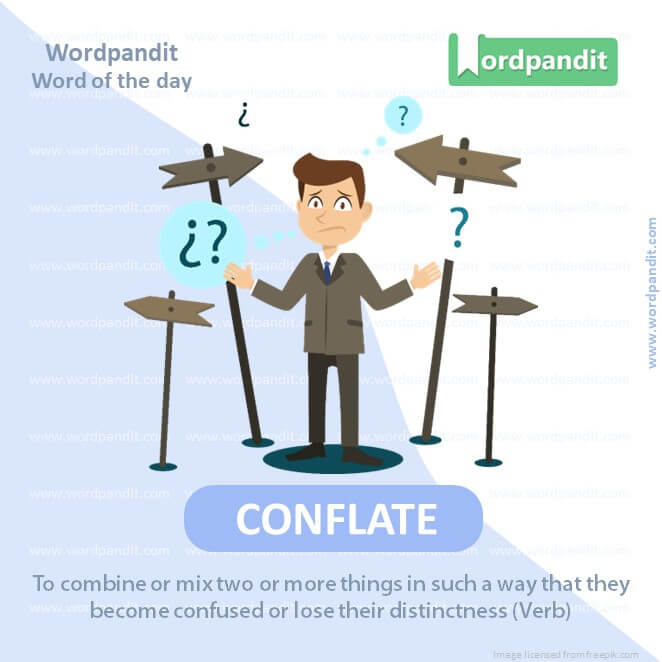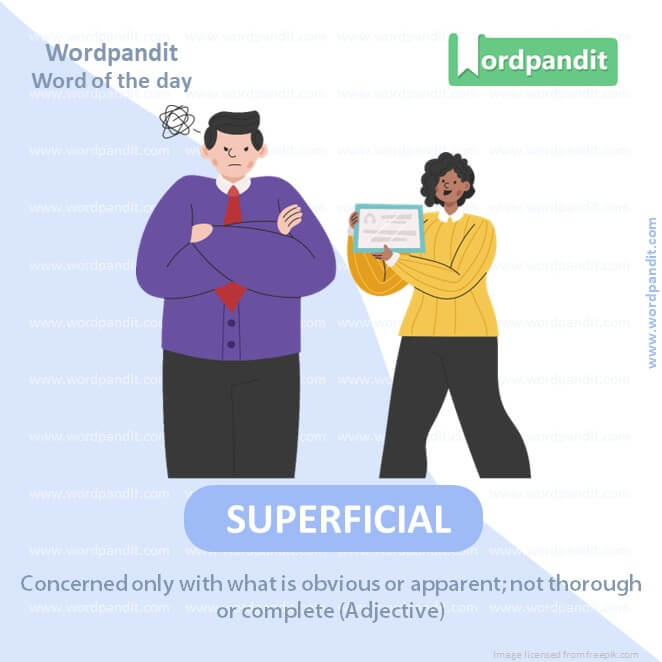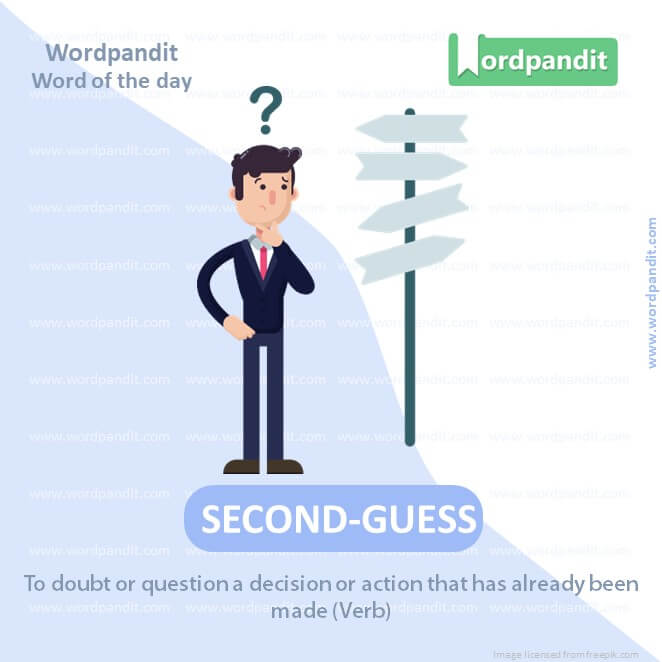Daily Vocabulary Words: List of Daily Used Words in Leading International Newspapers
Hi there. Welcome to this special section @ Wordpandit.
Our endeavour here is very simple: to highlight important daily vocabulary words, which you would come across in leading newspapers in the country. We have included the following newspapers in our selection:
• The New York Times
• The Washington Post
• Scientific American
• BBC
• The Guardian
• Psychology Today
• Wall Street Journal
• The Economist
We are putting in extensive work for developing your vocabulary. All you have got to do is be regular with this section and check out this post on a daily basis. This is your repository of words that are commonly used and essentially, we are posting a list of daily used words. Hence, this has significant practical application as it teaches you words that are used commonly in leading publications mentioned above.
Visit the website daily to learn words from leading international newspapers.

WORD-1: LINGUA FRANCA
CONTEXT: Despite English being the lingua franca of science, getting an excellent level of English is a privilege of few, restricted to high-income countries or those who can pay for intense language training in Global South countries. Yet, most of the hiring calls from Global North research institutes urging inclusion conflate being a good scientist with being good (or excellent) at English. This isn’t true.
SOURCE: Scientific American
EXPLANATORY PARAGRAPH: Imagine you speak one language, and your friend speaks another. If both of you know a third language that you can use to talk to each other, that’s called a “lingua franca.” It’s like a special language that helps people who speak different languages understand each other.
MEANING: A language that is used as a common means of communication between speakers of different native languages (Noun).
PRONUNCIATION: LEEN-gwuh FRAHN-kuh
SYNONYMS: Common language, bridge language, trade language, auxiliary language, vehicular language
USAGE EXAMPLES:
1. English is often considered a global lingua franca.
2. The lingua franca in the international business community is usually English.
3. Latin was the lingua franca of scholars in the Middle Ages.
4. Many port cities historically had their own lingua franca to facilitate trade.

WORD-2: CONFLATE
CONTEXT: Despite English being the lingua franca of science, getting an excellent level of English is a privilege of few, restricted to high-income countries or those who can pay for intense language training in Global South countries. Yet, most of the hiring calls from Global North research institutes urging inclusion conflate being a good scientist with being good (or excellent) at English. This isn’t true.
SOURCE: Scientific American
EXPLANATORY PARAGRAPH: Imagine you have a box of crayons and a box of markers. If you put them all in one box and say they’re all just “colors,” you’re mixing things up that are actually different. That’s what “conflate” means: putting different things together like they’re the same.
MEANING: To combine or mix two or more things in such a way that they become confused or lose their distinctness (Verb).
PRONUNCIATION: kuhn-FLAYT
SYNONYMS: Merge, blend, amalgamate, mix up, fuse
USAGE EXAMPLES:
1. The movie conflates several historical events into one narrative.
2. The researcher was criticized for conflating unrelated data.
3. People often conflate love and infatuation.
4. The artist conflated different styles in his painting.

WORD-3: SUPERFICIAL
CONTEXT: This is how hard it can be to learn English: In Brazil, where we come from, English education is superficial, especially in public schools. Most people only interact with English through songs or movies. Expensive private courses are beyond the possibilities of most of the population, but they are the only way to achieve proficiency without leaving the country.
SOURCE: Scientific American
EXPLANATORY PARAGRAPH: “Superficial” means something that is only on the surface and not deep. Like when you put a sticker on your toy, it only changes how the toy looks but not what the toy really is.
MEANING: Concerned only with what is obvious or apparent; not thorough or complete (Adjective).
PRONUNCIATION: soo-per-FISH-ul
SYNONYMS: Shallow, skin-deep, cursory, trivial, external
USAGE EXAMPLES:
1. The injury was only superficial.
2. She had a superficial understanding of the topic.
3. The book offers a superficial analysis of the issue.
4. They had a superficial conversation at the party.

WORD-4: SECOND-GUESS
CONTEXT: We understand that English proficiency is required to work in an English-speaking country, but science loses talent when it dismisses people who lack the expected “excellence” just because they lack practice. We believe that search committees must stop requiring candidates to have excellent communication skills in English. This statement in job listings makes most of us second-guess our skills. In addition, adding more non-native English speakers to search committees will help promote a better understanding that a language barrier is not a scientific expertise barrier.
SOURCE: Scientific American
EXPLANATORY PARAGRAPH: When you second-guess, you’re like a detective who keeps looking back at the clues, wondering if you solved the puzzle the right way. It means you’re doubting or questioning a decision you or someone else already made.
MEANING: To doubt or question a decision or action that has already been made (Verb).
PRONUNCIATION: SEH-kund-GES
SYNONYMS: Doubt, question, reconsider, rethink, reassess
USAGE EXAMPLES:
1. She began to second-guess her choice of college.
2. It’s easy to second-guess the coach after the loss.
3. Don’t second-guess yourself on the test.
4. I always second-guess my answers in trivia games.

WORD-5: PAROCHIAL
CONTEXT: Here is a question that is nowhere as parochial as it might sound: does it matter if Sadiq Khan is re-elected as London mayor next year? Not really, you might say in Newcastle; we’re more engaged in the drama over Labour’s dumping of popular metro mayor Jamie Driscoll. Yada yada, you might say in Manchester; we’ve got our own show, as Andy Burnham jousts with central government.
SOURCE: The Guardian
EXPLANATORY PARAGRAPH: Imagine you have a small sandbox and you think it’s the best and only place to play. You don’t know about the big playground around the corner. “Parochial” means you’re only thinking about your little sandbox and not about bigger things outside it.
MEANING: Having a limited or narrow view or scope, often focused only on a local
area or community (Adjective).
PRONUNCIATION: puh-ROH-kee-ul
SYNONYMS: Narrow-minded, insular, provincial, small-minded, limited
USAGE EXAMPLES:
1. His views were criticized for being parochial and lacking a global perspective.
2. The local newspaper has a parochial focus on community events.
3. She has a parochial attitude towards foreign cuisines.
4. The debate became more meaningful when it moved beyond parochial issues.
WORD-6: YADA YADA
CONTEXT: Here is a question that is nowhere as parochial as it might sound: does it matter if Sadiq Khan is re-elected as London mayor next year? Not really, you might say in Newcastle; we’re more engaged in the drama over Labour’s dumping of popular metro mayor Jamie Driscoll. Yada yada, you might say in Manchester; we’ve got our own show, as Andy Burnham jousts with central government.
SOURCE: The Guardian
EXPLANATORY PARAGRAPH: “Yada yada” is a funny way to say “and so on” or “blah blah blah.” When you’re telling a story and you want to skip over the boring parts, you can say “yada yada” to get to the good stuff!
MEANING: A phrase used to indicate that further details are predictable or uninteresting (Interjection).
PRONUNCIATION: YAH-duh YAH-duh
SYNONYMS: And so on, blah blah blah, etcetera, and so forth, you know the drill
USAGE EXAMPLES:
1. He talked about his day, his job, yada yada, until he got to the interesting part.
2. “You have to do your homework, clean your room, yada yada.”
3. She explained the procedure: sign the form, wait in line, yada yada.
4. The recipe calls for eggs, milk, flour, sugar, yada yada.
WORD-7: JOUSTS
CONTEXT: Here is a question that is nowhere as parochial as it might sound: does it matter if Sadiq Khan is re-elected as London mayor next year? Not really, you might say in Newcastle; we’re more engaged in the drama over Labour’s dumping of popular metro mayor Jamie Driscoll. Yada yada, you might say in Manchester; we’ve got our own show, as Andy Burnham jousts with central government.
SOURCE: The Guardian
EXPLANATORY PARAGRAPH: “Jousts” are like a game where knights ride on horses and try to knock each other off with long sticks called lances. It’s a kind of competition from a long time ago, but today we sometimes use “joust” to talk about any kind of contest or argument.
MEANING: Competitions between armored knights on horseback, using lances; or any contests or confrontations between individuals or groups (Noun, Verb).
PRONUNCIATION: jowsts
SYNONYMS: Tournaments, contests, skirmishes, battles, competitions
USAGE EXAMPLES:
1. The medieval fair included jousts and sword fights.
2. They engaged in verbal jousts during the debate.
3. The athletes had friendly jousts on the field.
4. The two companies had marketing jousts to win customers.
WORD-8: RUINOUS
CONTEXT: Leadership doesn’t mean your representative ignores you. Tony Blair would have done well to heed the warnings of millions who marched in London in 2003 to head off British participation in the ruinous war in Iraq. He won the election two years later, but his judgment was awry, and he lost the gamble. His majority tumbled, and with it, irretrievably to this day, his reputation.
SOURCE: The Guardian
EXPLANATORY PARAGRAPH: “Ruinous” means something that can break or destroy things really badly. Imagine building a sandcastle and then a big wave comes and washes it away—that wave is ruinous to your sandcastle.
MEANING: Causing or likely to cause severe damage or destruction (Adjective).
PRONUNCIATION: ROO-in-uhs
SYNONYMS: Destructive, devastating, disastrous, harmful, catastrophic
USAGE EXAMPLES:
1. The hurricane had a ruinous impact on the town.
2. His financial decisions were ruinous for the family.
3. The ruinous policies led to the collapse of the company.
4. Ignoring the warning signs can be ruinous in the long run.
WORD-9: AWRY
CONTEXT: Leadership doesn’t mean your representative ignores you. Tony Blair would have done well to heed the warnings of millions who marched in London in 2003 to head off British participation in the ruinous war in Iraq. He won the election two years later, but his judgment was awry, and he lost the gamble. His majority tumbled, and with it, irretrievably to this day, his reputation.
SOURCE: The Guardian
EXPLANATORY PARAGRAPH: “Awry” means when something goes wrong or doesn’t happen the way you wanted. Like if you tried to build a tower of blocks and it falls down, it went awry.
MEANING: Away from the expected or proper direction; amiss, wrong (Adverb, Adjective).
PRONUNCIATION: uh-RYE
SYNONYMS: Astray, amiss, wrong, askew, off course
USAGE EXAMPLES:
1. The project went awry and had to be abandoned.
2. Her hair was all awry after the windy walk.
3. Their plans went awry when the flight was canceled.
4. Something seemed awry in his explanation.
WORD-10: IRRETRIEVABLY
CONTEXT: Leadership doesn’t mean your representative ignores you. Tony Blair would have done well to heed the warnings of millions who marched in London in 2003 to head off British participation in the ruinous war in Iraq. He won the election two years later, but his judgment was awry, and he lost the gamble. His majority tumbled, and with it, irretrievably to this day, his reputation.
SOURCE: The Guardian
EXPLANATORY PARAGRAPH: “Irretrievably” means something is lost and you can’t get it back, no matter what you do. Like if your
ice cream falls off the cone and lands on the ground, it’s irretrievably gone.
MEANING: In a way that cannot be recovered, restored, or undone (Adverb).
PRONUNCIATION: ih-ree-TREE-vuh-blee
SYNONYMS: Irrevocably, permanently, unalterably, irreparably
USAGE EXAMPLES:
1. He irretrievably deleted the files.
2. Their relationship was irretrievably broken.
3. The decision was made, and the consequences were irretrievably set in motion.
4. Her trust was irretrievably lost after the betrayal.
Vocabulary Pronunciation
In the realm of language learning, one cannot undermine the omnipresent importance of ‘vocabulary pronunciation’. It’s not just about knowing a myriad of words, but pronouncing them correctly is equally, if not more, essential. Incorrect vocabulary pronunciation can lead to miscommunication, confusion, or even misunderstanding. Consequently, proper pronunciation bridges the gap between knowing a word and articulating it confidently.
Learning vocabulary pronunciation should be a holistic process involving listening, speaking, reading, and writing. The first step is listening. Attuning your ears to the correct pronunciation provides a solid foundation. You could utilize resources like dictionaries with audio pronunciations, language learning apps, and even YouTube tutorials to consistently expose yourself to the correct vocabulary pronunciation.
Practicing these pronunciations is the next pivotal step. Speaking out loud helps cement the words in your auditory memory, enhancing your recall and vocabulary pronunciation skills. Don’t hesitate to repeat words until you’re comfortable with them. Here’s where mirror practice can come in handy, helping you monitor the movement of your lips and tongue to ensure accurate vocabulary pronunciation.
Reading is another productive way for vocabulary pronunciation enhancement. This can involve reading aloud from books or scripts, which helps in solidifying the pronunciation. Similarly, writing and learning phonetic transcriptions of words can also assist in enhancing vocabulary pronunciation.
Lastly, be consistent and patient. We can’t stress enough the importance of practice toward achieving impeccable vocabulary pronunciation. Many language learners may feel frustrated when they don’t notice immediate results. Hence, it’s essential to remember that vocabulary pronunciation, like any skill, improves over time and requires persistent practice.
In conclusion, vocabulary pronunciation is vital for communicating effectively in any language. By listening, speaking, reading, writing and practicing consistently, one can master vocabulary pronunciation, paving the way for efficient and impactful communication.







